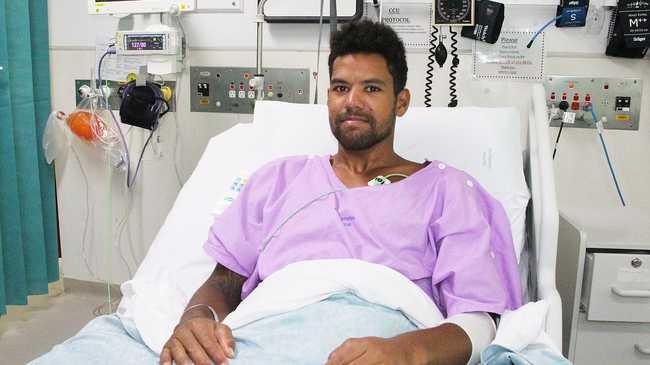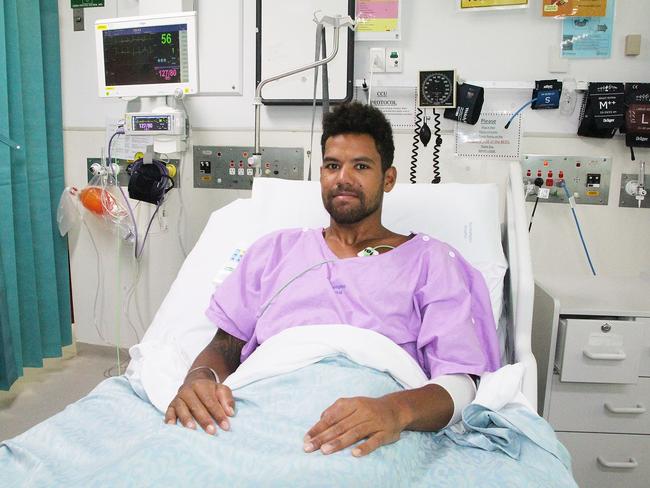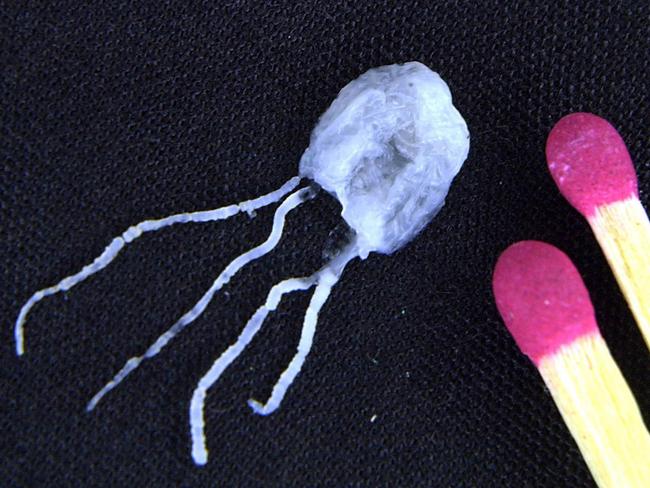Diver survives Irukandji sting that he said felt like 'getting hit by a car'
A 28-year-old diver says being stung by the notoriously painful and deadly Irukandji jellyfish was like "getting hit by a car" when it stung his face from cheek to cheek while diving off Mast Head Island in central Queensland.

QLD News
Don't miss out on the headlines from QLD News. Followed categories will be added to My News.
“LIKE getting hit by a car” was how 28-year-old Ben Lawrence described the feeling of being stung on the face by a deadly Irukandji jellyfish.
Last Tuesday Mr Lawrence was diving off Mast Head Island when the Irukandji found its way between his diving suit and mask, stinging his face from cheek to cheek.
Speaking to The Observer from his bed at Rockhampton Base hospital, Mr Lawrence recalled the pain that ensued from that moment on.
“I’d never felt anything like that in my life, it was probably the worst in my life,” Mr Lawrence said.
“I was working for about 2–3 minutes and the pain came on which was immediate – stomach pain, back pain, nausea.
“It was pretty intense.”
The sea cucumber diver from Airlie Beach was on the last day of a three-week diving trip when he was struck.
He said after about three minutes he was pulled back onto the boat, was given oxygen and poured water over the sting area before he started vomiting.
He got in touch with the Royal Flying Doctor Service who advised morphine injections into his leg.
“It was not fun,” he said with a laugh.
“I was getting waves of pain coming up my leg, I was getting a cramp in my chest and abdomen.”
He said after about an hour of riding out the pain the helicopter arrived with a “really nice” paramedic and winch operator.
“I was conscious, but it was kind of like a dream,” he said.
“The paramedics in the helicopter thought I was going unconscious, but it was easier for me to lie completely still.

“You can kind of ride it out – go into your own little quiet place.”
Fifteen minutes later they arrived at Rockhampton Base Hospital where he was to stay for just under a week.
Between 50–100 patients a year are treated for Irukandji stings.
The stings can be so severe they cause fatal brain bleeding and on rare occasions Irukandji syndrome – a feeling of impending doom.
However, Mr Lawrence wasn’t concerned for his life.
“I’d be a bit more worried if I was a bit older or had any heart conditions,” he said.
Even days after the initial sting he was still in severe pain.
“Like getting hit by a car. It feels like I’ve fallen off a building and landed standing.”
Despite the ordeal, Mr Lawrence plans on eventually going back to work.
“Out of 2000 dives on the reef and the one bad thing that happens, that’s not too bad,” he said.

“I’ll survive and I’ll get back out there.”
In a silver lining, the time he’ll need off work will allow him to fly to his original home, New Zealand, to see his brother get married.
He was highly complementary of the paramedics and hospital staff who helped him throughout his treatment.
“It was a rough week, I wouldn’t have got through it without them,” he said.
Mr Lawrence is expected to leave Rockhampton Base Hospital today.
Originally published as Diver survives Irukandji sting that he said felt like 'getting hit by a car'
